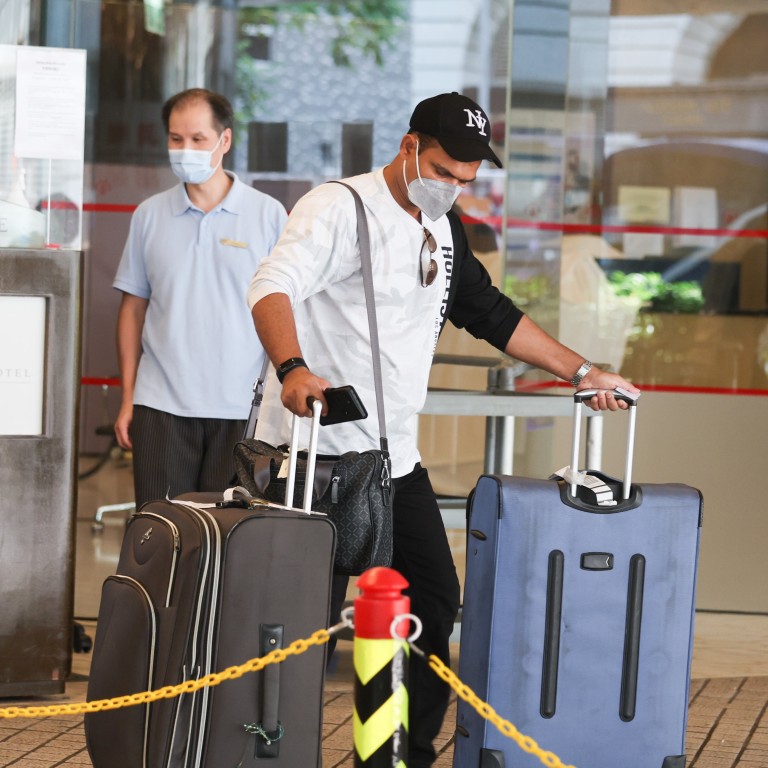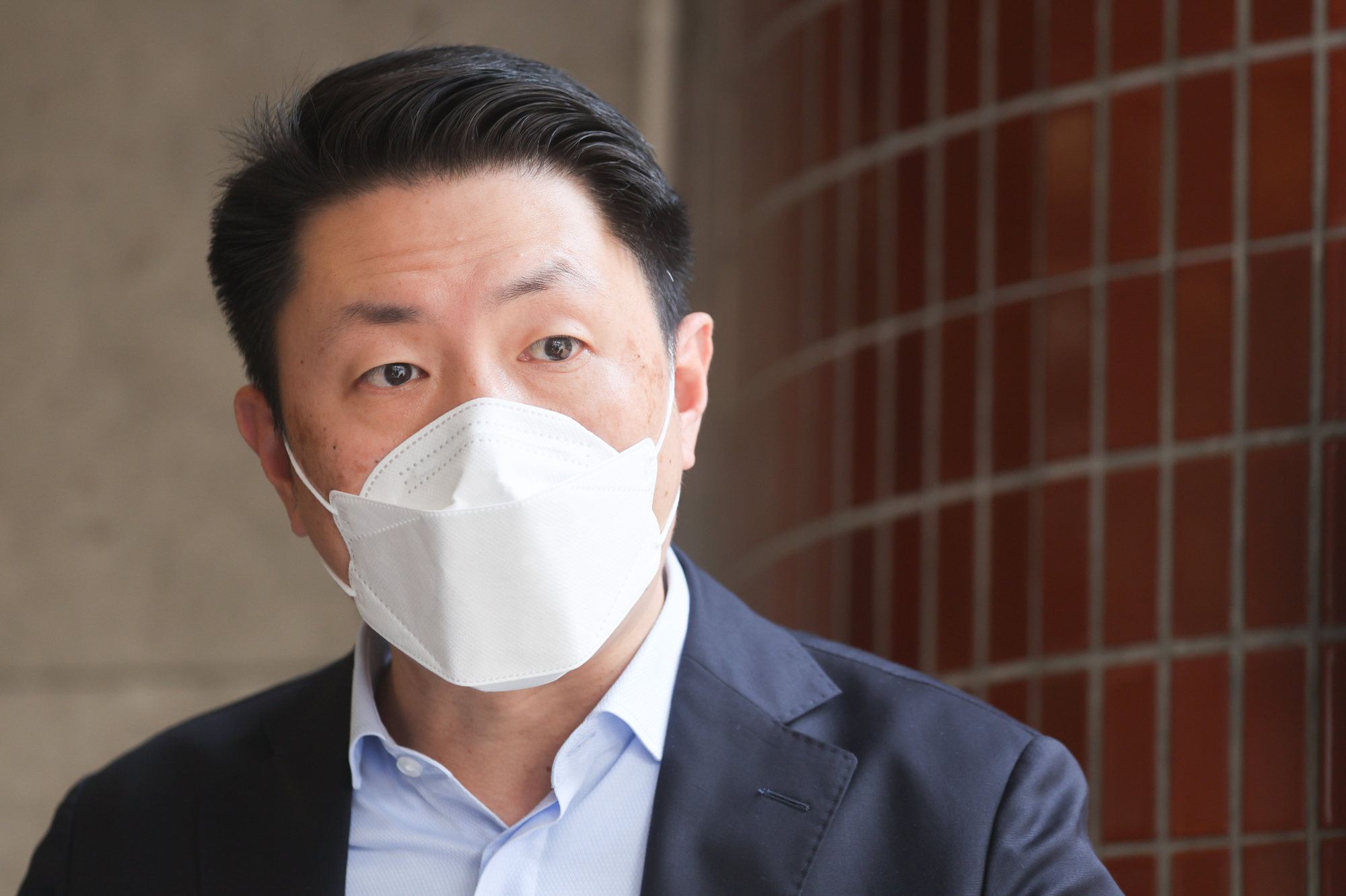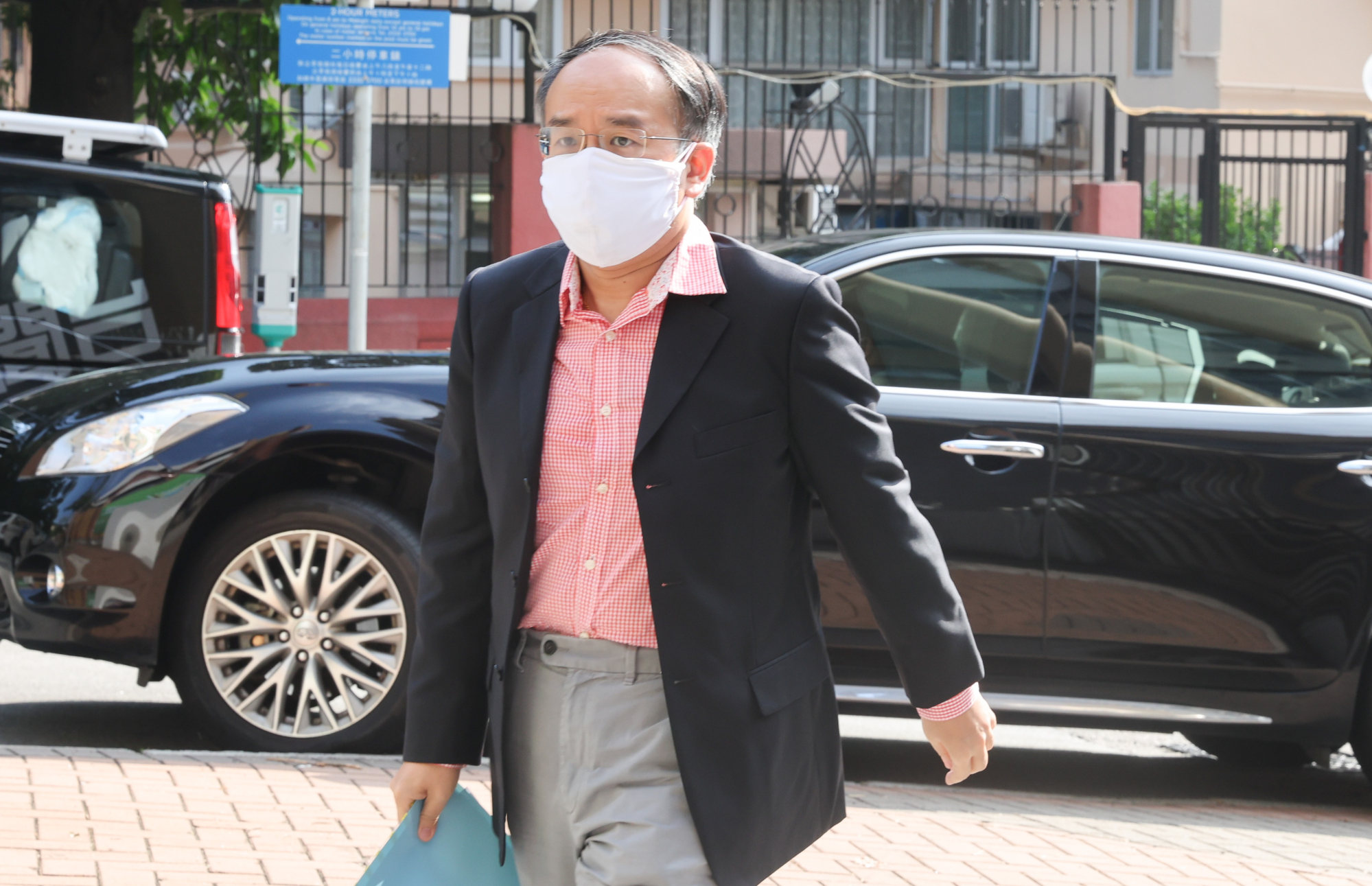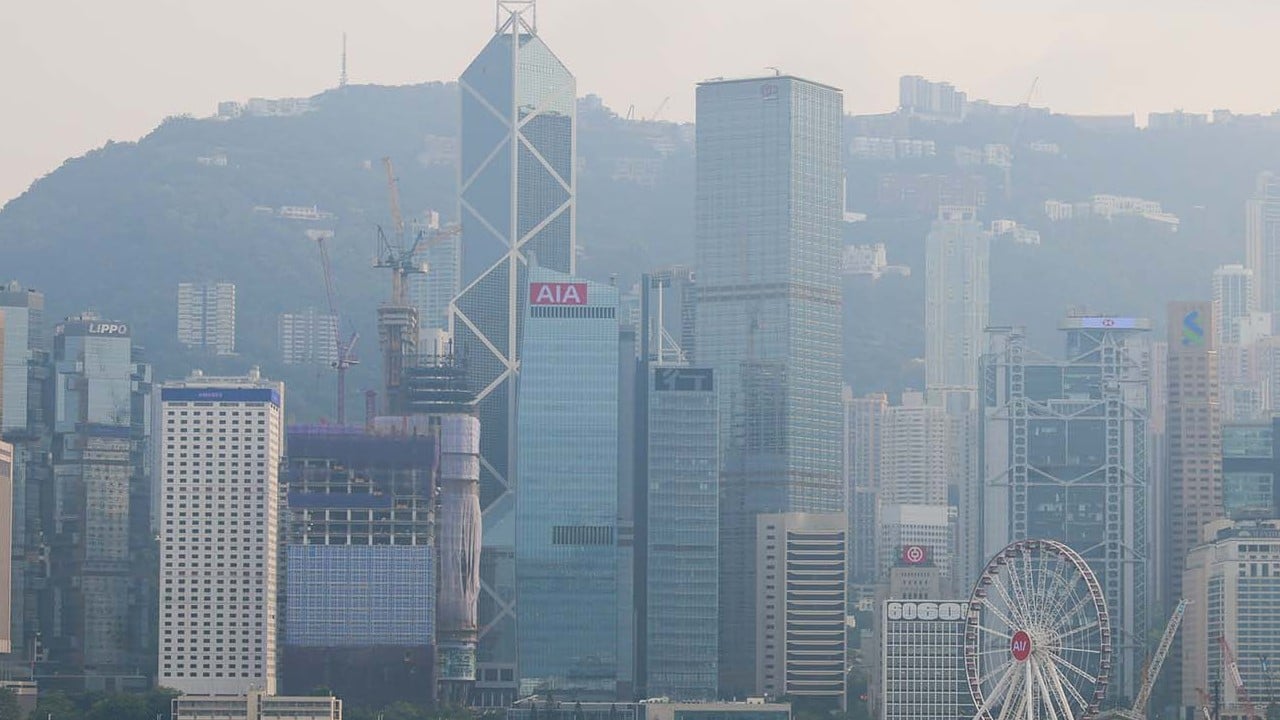
Coronavirus: Hong Kong can consider scrapping all travel curbs if cases stabilise, experts say, while health officials concede living with virus likely future path
- Professor Ivan Hung says city could do away with recently revealed ‘0+3’ arrangement if imported cases remain less than 5 per cent of monthly virus tally
- Health authorities admit living with virus will probably become a reality, as doing away with it entirely is difficult
Hong Kong can consider scrapping all isolation requirements for inbound travellers in the next few weeks if the number of imported coronavirus cases remains stable and local ones are kept contained, infectious disease experts have suggested.
Health authorities admitted on Saturday the city would likely need to accept living with the virus, saying it was difficult to eliminate entirely from the community. But Professor Ivan Hung Fan-ngai, a government pandemic adviser from the University of Hong Kong, suggested the city could afford to end all travel restrictions if the proportion of cases from overseas stayed below 5 per cent in the coming weeks.
“We may see this in the next few weeks provided the local cases are kept under control, which lessens the burden on the healthcare system,” he told a radio programme.
Hong Kong is finally axing hotel quarantine – here’s what you need to know
The number of daily coronavirus cases in Hong Kong has dropped by just over 3,000 in a week. Health officials reported 5,190 new infections on Saturday, 152 of which were imported, and seven additional related deaths.
The government announced it would scrap the hotel quarantine requirement for travellers from Monday and launch a “0+3” scheme, requiring arrivals to undergo three days of medical surveillance at either home or a hotel.
But they would be barred from premises, such as restaurants and bars, under the city’s vaccine pass arrangement during the period.
The “0+3” plan will replace the current “3+4” initiative, which involves three days of hotel quarantine and another four under medical surveillance, while social-distancing rules and the mask mandate will remain in force.

Hung said restrictions on travellers could be relaxed in favour of testing if the epidemic situation in Hong Kong improved.
“The travellers can go everywhere including restaurants after they obtain the first negative test result upon their arrival,” he said.
Between August 12 and September 15, imported coronavirus cases accounted for 3.3 per cent of all infections logged, a decrease from the 4.7 per cent reported from July 8 to August 11, according to the health minister.
Hung added the population enjoyed a significant degree of hybrid immunity, which was achieved when a person receives at least one dose of a Covid-19 vaccine or has been infected with the virus before or after receiving a jab.
He noted daily case figures recently peaked at 11,091 in early September before rapidly declining and estimated the number of infections per day could drop to between 2,000 to 3,000 in several weeks’ time.
If cases continued to fall, Hong Kong could minimise the use of its healthcode system as part of the medical surveillance period required for travellers and restrictions on access to venues deemed to be high-risk, Hung said.
“We may not need the amber code any more … We may only need it for the short period of time when travellers are waiting for their [first] polymerase chain reaction [PCR] test results,” he said.
No more hotel quarantine in Hong Kong for arrivals from Monday
Dr Leung Chi-chiu, a respiratory medicine specialist, echoed Hung’s views, saying the government must ensure a continuous downward trend in the local coronavirus cases and that any spike in imported cases did not affect the city’s medical system before moving on to the next step of lifting all restrictions. But he did not expect the local caseload to surge.
“The coronavirus was already widely spread. The downward trend will continue if no new variant emerges,” he said.
When asked whether rules for arrivals or social-distancing measures could be further relaxed, Dr Chuang Shuk-kwan of the Centre of Health Protection said the government hoped to reduce inconvenience to the public while maintaining the effectiveness of anti-epidemic measures.
“The government would continue to monitor the situation closely and consider relaxing measures when possible,” she said.
But it was unlikely the virus could be eliminated entirely in the community as Hong Kong was an open city, she argued.
“When it comes to zero [ with the number of confirmed cases], I think the chances are small, because the whole world has to clear all the cases before this can happen, and the new coronavirus may live with us,” Chuang said.
Beijing backs Hong Kong leader’s changes to Covid-19 travel rules
“Now that we have gone through the fifth wave, the majority of our population has been infected or fully vaccinated, but we still have quite significant numbers of cases in the community. It is very infectious and it will be very difficult to achieve zero cases in the community.”
As the pandemic situation was stabilised, authorities decided to suspend the daily pandemic press conference from Sunday.
Chuang said that whether the updates would resume depended on the situation, and she thanked the public for their patience and cooperation over the past two years.
“The pandemic has lasted for more than two years. The government hopes that the citizens can return to a more normal life,” she said. “I also hope that this is the last press conference. I take this opportunity to wish you all good health and a happy life.”
Dr Gladys Kwan, a chief manager with the Hospital Authority, urged the public to remain alert despite decreasing caseloads and seek medical help if needed. She also noted that they are working towards the resumption of normal medical services.

Secretary for Financial Services and the Treasury Christopher Hui Ching-yu said the relaxed measures for arrivals had been welcomed by businesses, but authorities would need to review the situation before deciding whether to further ease curbs ahead of a major summit for finance and technology industry leaders in November.
“We have been actively reaching out to different sectors, especially the overseas institutions, and hope they will participate in the summit in some form,” Hui said.
“We need to see how to utilise technology, science and data to curb the Covid-19 outbreak.”
Hong Kong’s Covid-19 tally stands at 1,741,604 cases and 10,106 related fatalities.




